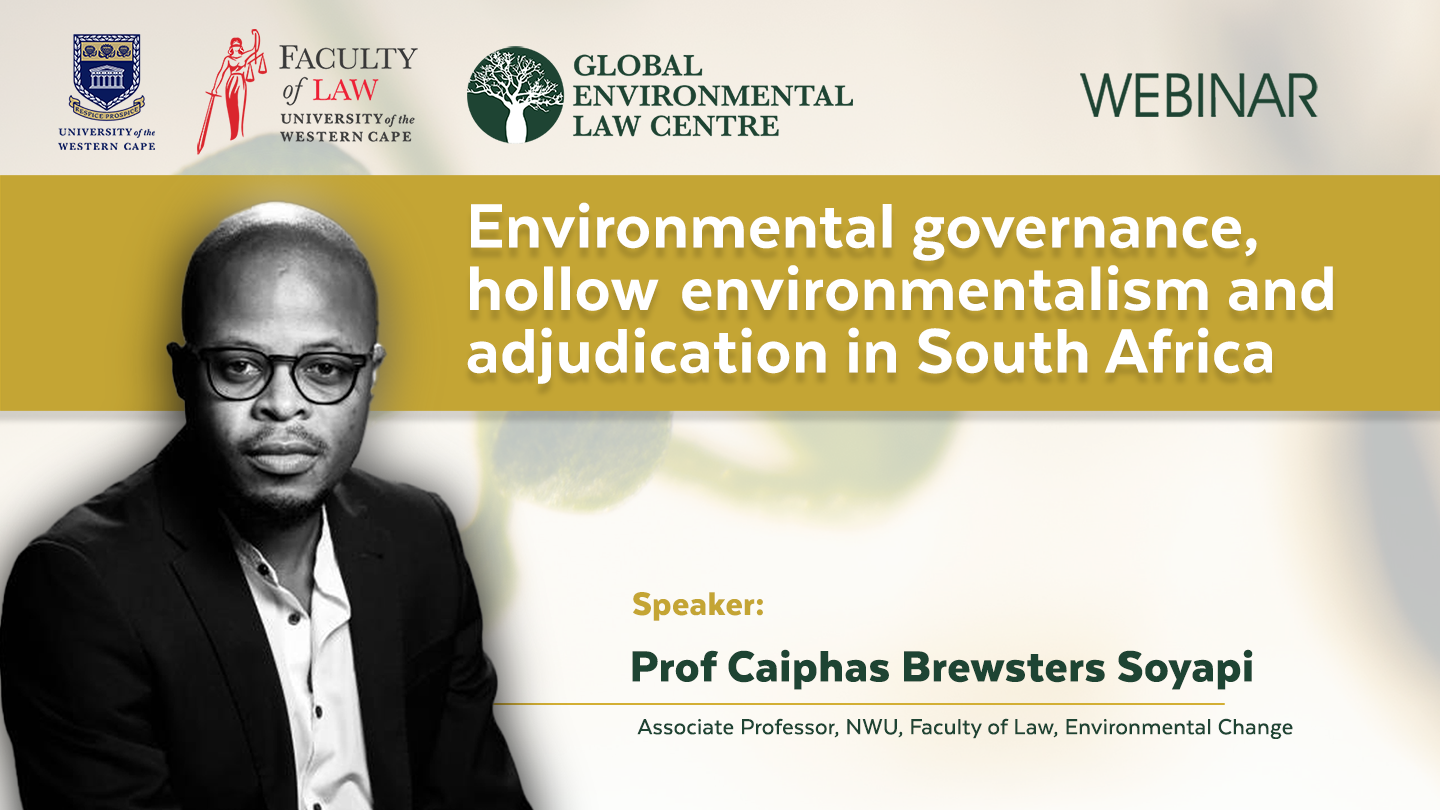
The ICC’s Arrest Warrant issued against President Vladimir Putin: Disentangling South Africa’s Domestic and International Legal Obligations
April 24, 2023
Reflections on transitional justice in Africa during Covid-19
June 22, 2023
Environmental governance, hollow environmentalism and adjudication in South Africa
My thought experiment in this paper leads me to the conclusion that South Africa’s environmental governance performance often experiences what l term ‘hollow environmentalism’: the inevitable overall long-term outcome resulting from the practice of promulgating seemingly symbolic laws and policies whose objectives are often not fulfilled.
On a narrow level, hollow environmentalism could also occur when such seemingly symbolic environmental laws and policies result in judicial decisions which do not have substantive ecological justifications (symbolic judgements even). I develop this argument through four main considerations. I start with a reality check on environmental governance, asserting that the state is not a neutral actor, a factor which requires state decisions to be closely scrutinised. This leads to the conclusion that governance is at a crossroads. Here, l argue that the symbolic nature of our environmental laws (broadly speaking) is such that the lofty ideals they present cannot always be met by the state. This at times makes it difficult for courts to decide on such issues. l then align my thoughts with recent literature that adjudication in a time of climate crisis requires courts to be more bold in their role, considering the tenuous nature of the task of stabilising environmental disputes. The penultimate section brings the discussion to a close by suggesting two interconnected possibilities for at least arresting hollowness in the face of climate change: sunsetting and substitution.
